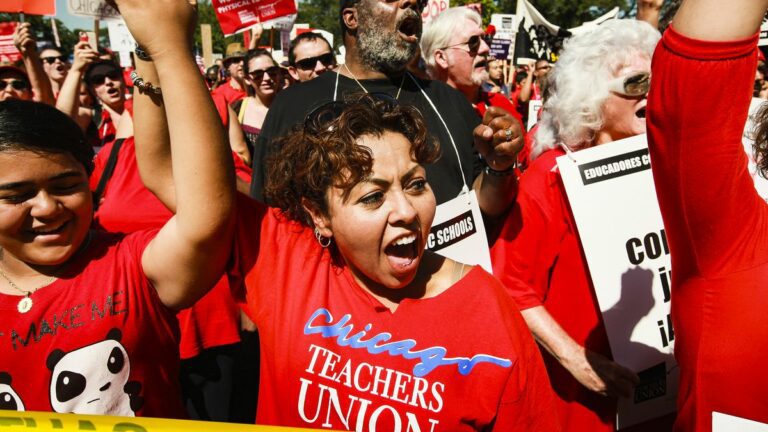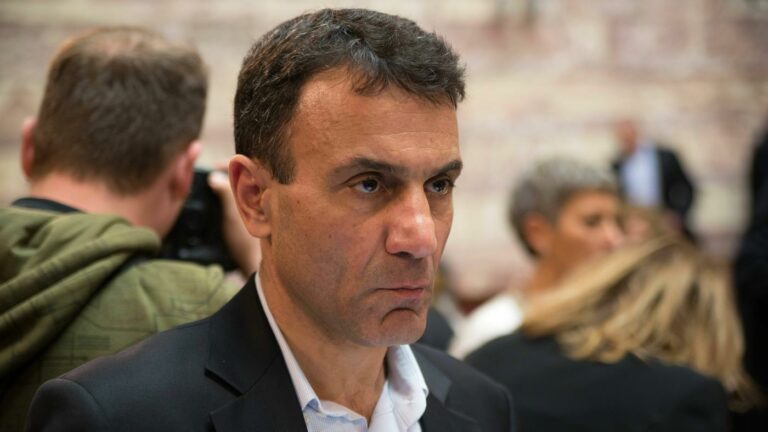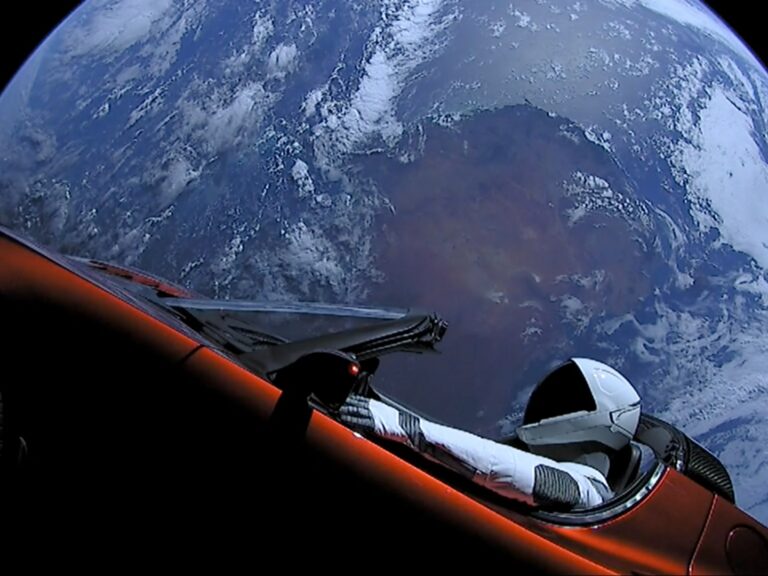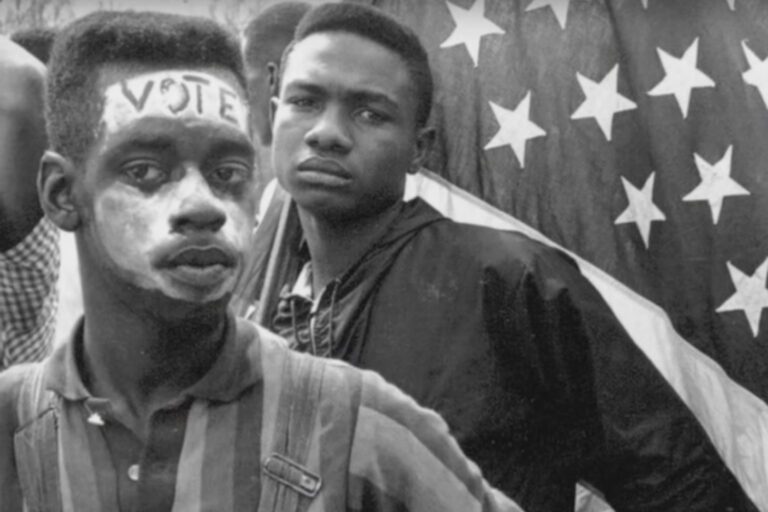This interview was originally released on April 18, 2014. On Reality Asserts Itself, Mr. Lander analyzes why the Chavez and Maduro governments have so far been unable to reduce the high rates of murder and violent crime.
PAUL JAY, SENIOR EDITOR, TRNN: Welcome back to The Real News Network. I’m Paul Jay. Welcome to Reality Asserts Itself.
We’re continuing our discussion about Venezuela and the Bolivarian Revolution, its achievements and lack thereof.
And now joining us again in the studio is Edgardo Lander. He’s a sociologist and professor at the Central University of Venezuela in Caracas. He holds a degree in sociology from the Universidad Central de Venezuela in Caracas. He has a MA and PhD in sociology from Harvard University. And he is a well-known supporter and critic of the revolution.
Thanks for joining us again.
PROF. EDGARDO LANDER, UNIVERSIDAD CENTRAL DE VENEZUELA IN CARACAS: [incompr.]
JAY: So one of the things that I think is driving the current crisis in Venezuela is the issue of–is crime, why murder rate is still so high, why the crime rate is still so high. And, you know, people say, you know, governments had enough years to have at least made a dent in this, and they barely made a dent. So what–you know, in terms of the aims of the revolution, to look after people’s well-being and, obviously, people’s safety, why has this become a problem that they don’t seem to have been able to deal with?
LANDER: Well, it’s more serious than that, in the sense that the crime rate–I mean, homicides have increased by fourfold during the last 15 years. So it’s a really, really huge problem. Caracas has become one of the most dangerous cities in all the Americas.
And I think it has to do with a lot of things, first the fact that–I believe that from Chávez’s perspective, crime was seen as a social problem, in the sense that it was due to lack of education, lack of opportunities, lack of jobs, etc., etc., and that if enough social transformations are carried out, then the crime rate would decrease. That proved not to be the case. There has certainly been many more educational and job opportunities than ever before, and the crime rate has just increased and increased. And for the first, I don’t know, ten years of the Chávez government, there weren’t any policies that confronted the issues related to what causes crime directly.
JAY: For example?
LANDER: I think there’s sort of five major components of the crime situation in Venezuela. There’s a corrupt and repressive police. The jail system is practically a school for criminals. When young kids are put into prison in overcrowded establishments with seasoned criminals and they spend their three or four years before they’re brought to trial, they certainly come out differently from what they–more sort of trained and hardened than when they went in. The courts are very deficient. As I said, it takes–there’s a huge backload of cases that aren’t–don’t go through the court system. And so people are just in prison–not at the scale of the United States, of course, I mean, in proportional terms, but in a significant scale. Then there’s the fact that there are so many arms available in Venezuela. The use of arms is very, very widespread, and many conflicts, many personal conflicts are solved through the guns. And there’s also the fact that drugs have become more important as Venezuela has become a route for Colombian drugs to go to U.S. and E.U. markets.
So if you combine all those things, some people argue that this also has to do with sort of the intensity of political confrontation–that sort of creates state of permanent verbal violence that sort of creates a sort of backdrop of violence. I’m not sure to what extent that–. The thing is that very little has been done in relation to any of those things.
JAY: Yeah, because if you break down at least some of the ones you’ve listed, I mean, jails, for example, one would think that something–
LANDER: That should be fairly easy to solve.
JAY: –you could solve that. You know, let’s reform the jails. Let’s kick out the old guard. What are the best practices for reforming people in jail? You know, that’s something you could have hived off and started to fix.
LANDER: When I visited the prison in Johannesburg where Mandela was held, a quote by Mandela said, you can judge a society by the way it treats its lowest ranking. And those happen to be prisoners. And in Venezuela, if you look at the way prisoners are treated, then you have a horrible vision of what that society’s like.
People in the prisons are armed. The /pris?s/ are controlled from the inside by gangster types.
JAY: Which is very similar to American prisons.
LANDER: And very little has been done. And it’s something relatively obvious. There aren’t that many prisoners in Venezuela that it would require an investment beyond the state’s capacity. That’s certainly not the case.
At the same time, the fact that the court system is not independent from the federal government means that judges can be removed at will, because not that many judges have a permanent position. So judges are afraid to take decisions. So there’s a great amount of impunity, widespread impunity. So if you have police corruption and impunity and judges that are afraid to make harsh decisions that might be unpopular to somebody else, that really builds up to a really dramatic situation.
JAY: I mean, I actually understand–and we’re going to talk a little bit more about that in a minute–I understand how difficult it might be to grapple with, you know, so many decades of corruption, you know, like, 100 years, if you want, integrated in the oil economy, as you said before. And I understand how it might be difficult to take on corruption in the army, even the police force. But I don’t get jails. I mean, if you want to do it, it seems to me it could be done. I don’t get that, that–. Anyway. I mean, do you have any more thinking on why they wouldn’t have reformed the jails by now? There’s–I mean, let’s–to be clear for people who haven’t followed the story, there’s been fires where people have been killed, there’s been, you know, battles, and there’s been terrible scandals about the jail system.
LANDER: No, I always think that if the state decides to take somebody out of the street and put him into a prison, I mean, the most important responsibility is to guarantee he stays alive. I mean, if the state can’t guarantee someone in prison stays alive, then they shouldn’t have a right to put him in prison. I mean, that’s sort of basic.
JAY: Okay. The other–.
LANDER: And the other thing is the police.
JAY: Well, I was going to say, when I was in Venezuela, you know, several times, and ten years ago, and one of the jokes used to be, if you get mugged on the street, don’t yell, because a cop might come. You know, people were more afraid of police corruption than they were of being robbed. But that still doesn’t seem to have changed much. Now I see President Maduro’s talking about a national police force, but that’s been the possible solution for, like, a decade.
LANDER: Yeah. [incompr.] years ago, a national police academy or university was created. This has been a really important experience, because it was created and staffed by people that come from the human rights movements in Venezuela. The whole university was conceived as a new academy to train the Bolivarian National Police. And the whole curriculum is crossed from A to Z with notions of human rights and the responsibility of the police to guarantee human rights.
I was invited twice to talk about the war on drugs, and I gave in both situations the most sort of radical conference I could possibly imagine in terms of questioning the war on drugs, asking for a complete liberalization of drug consumption and to assume drugs as a health issue and all the consequences. And to my surprise, all the students just sort of listened and sort of nodded. And so it was a completely different environment from what one could expect in a military academy–in a police academy.
This, of course, led to confrontations with the old police establishment, because it was really questioning what they were doing, what they were–not only their practice, but what they believe the police should do, because they thought that if the police has to sort of use human rights guidelines [incompr.] to sort of [incompr.] against–in the struggle against crime. So, I mean, you see that sort of debate in this country as well in terms of different conceptions of what the police should do or shouldn’t do.
The thing is that this really promising experiment is threatened now because the people who were responsible–I mean those people I was referring to that come from the human rights–
JAY: In this academy, yeah.
LANDER: –have been displaced by people [crosstalk] more traditional thinking.
JAY: Is part of the problem here, for Chávez and now Maduro, that you can’t fight on too many fronts at the same time, and if you’re taking the elite on over the oil and you’re trying to develop–sort of defend the achievements of the revolution–and we talked about that in earlier segments–there’s a lot of achievements, and a lot of power has been pried out of the hands of the elites that had it for many years, and a lot of the oil money is now going for social programs and for the benefit of the poor and such–that if you want to defend all of that, you can’t fight on the front of taking on corruption in the army, and to some extent the police force, because then the elite will take advantage of that, and then the whole thing unravels.
LANDER: Well, the police and the army are sort of different issues. The police, as such, is not a political force in Venezuela. It doesn’t have the capacity to challenge the government, it’s not something that–there’s no–.
JAY: But they’re not allied with or protected by corrupt elements in the army? This is just a question.
LANDER: Yeah, they probably are, but it’s not–the police in Venezuela’s much more fragmented, because [incompr.] been municipal police is–on the different levels are not–and state police. So it’s much more fragmented than the military as such. The military’s really centered and sort of united in its structure of the police. But, I mean, if this experience of transforming the police had begun 15 years ago, or maybe two years after that [incompr.] some time ago, I’m sure a lot of changes would have been possible.
JAY: I should quickly add that–.
LANDER: And there’s–I mean, after 15 years, I mean, there are so many police, new police that have to go in that. I mean, just the generation change would have meant something very significant [incompr.] some time ago.
JAY: I just want to add something about when we’re talking about corruption in the army is the Venezuelan army, for people that haven’t been there, that’s a very complicated story, because there’s a lot of–from my experience there, from what I understand, there’s a lot of actual affection for the army. This isn’t an army that’s considered, like, you know, some tyrannical, I don’t know, maybe Pakistani style army that has their fingers into everything and kills everyone they don’t like, is repressive, that the army actually has done a lot of good. They’re involved in a lot of the social missions in the barrios. I know when I was observing one of the elections–and people had a lot of respect for the soldiers. So it’s a complicated thing here is that the army is not in any way, like, demonized by people in Venezuela. On the other hand, it seems obvious to everybody: a lot of the corruption that takes place in Venezuela does take place in the army.
LANDER: Yeah. Both things are true.
The army in Venezuela is a lot less repressive than it used to be, so people’s vision of the army has certainly changed. If you drive around Venezuela and you have somebody stop you, some army control post, now it’s completely different than it used to be. I mean, before, you were sort of scared to hell because you didn’t know what was going to happen. Now you don’t expect anything will happen. So in general the population’s relation to the army, especially sort of face to face, it’s changed, and it’s changed very significantly.
And at the discourse level for the Chavista population, there’s a whole discourse on the alliance of civilians and the military.
JAY: I mean, the army has been the defender of the Bolivarian Revolution.
LANDER: Yeah. Yeah, yeah. And in Venezuela the army is in general quite a popular army in terms of its class origins. I mean, a great majority of the army comes from popular sector of the population. So it’s not an elite army like in some other countries, even in Latin America.
But it’s also true that the role of the Armed Forces in the government, in all sorts of government agencies, is huge. That’s partly due to the fact that Chávez had more faith in his comrades in the army than in civilians.
But it leads to having army officers in very critical areas all across the country, where the potential for corruption is available. And that’s one thing that the government, Chávez or now Maduro, has decided to confront, because it is a government that needs the backing of the Armed Forces, and anything that threatens the backing of the Armed Forces would be a threat to the government’s stability.
And that, it’s a very severe situation, because corruption is huge. Corruption has a huge impact in the present economic situation in the country. And if you want to deal with those issues, you have to deal with transparency. You have to deal with corruption issues. And that hasn’t been done.
JAY: But then he has to take on many elements of the army that are involved in this.
LANDER: Yeah. Yeah.
JAY: Let’s go back to the issue of crime. The corruption at the level of police forces, why couldn’t they have actually just used the army more? If they can’t–you know, to try to clean out the police forces, if that’s a big piece of why they can’t control crime? I mean, when it became clear–and it should have become clear, you know, years ago–that the idea of just better social policies was going to deal with crime and that police corruption was such a big piece of it, just as I say ten years ago I heard this joke about don’t be loud or a cop might come, they talk about grappling with it, but they haven’t. Why–they could have used the army, at the very least [crosstalk]
LANDER: If you take out the army and put the army in control of things like drug traffic, the army immediately becomes involved in drug traffic itself. I mean, that has been the case in, as I was telling you earlier about illegal gold extraction in parts of Venezuela, where army officers are removed and removed and removed and removed to control, and after a while they all become corrupt. [crosstalk]
JAY: So how do you break this cycle?
LANDER: You have to have a more democratic system, in which there’s really transparency. And there’s not, because that’s one of the problems with this sort of hierarchical political structure in which you have sort of many levels of democracy and participation but the main decisions are made elsewhere. They’re made at the top.
JAY: Okay. In the next segment of our interview, we’re going to talk about democracy in Venezuela. So please join us for the next segment of our interview with Edgardo Lander on Reality Asserts Itself on The Real News Network.
Never miss another story
Subscribe to theAnalysis.news – Newsletter
“Edgardo Lander (born 1942) is a Venezuelan sociologist and left-wing intellectual. A professor emeritus of the Central University of Venezuela and a fellow of the Transnational Institute, he is the author of numerous books and research articles on democracy theory, the limits of industrialization and economic growth, and left-wing movements in Latin America.”















